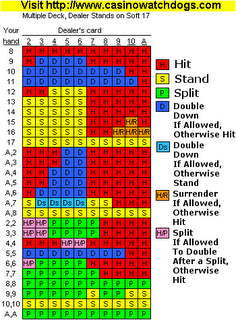OK, so you've opened a Traditional or Roth IRA. Good. After you send in your check, how should you invest it? Let's assume, for the sake of this post, you are under 40 years of age.
For someone who is busy with other things in life and has limited knowledge of investing, there are two choices that I see as the easiest and most foolproof way to invest your money. Either one works, and the first is slightly more foolproof than the second:
1.
Buy a life cycle fund.
These are mutual funds that allocate your money among different funds (sort of like a fund of funds). It allocates in such a way where more money is invested in equity funds when you are younger and more money is invested in fixed income funds as you get closer to retirement. It's sort of like that 'set it and forget it' infomercial. Usually, companies offer a a selection of these funds broken out into 5 year intervals. Pick the one that's closest to the date you want to retire, and you're done. Every 5 years, the fund will re-balance to a more conservative ratio of fixed income to equity, so that when you are nearing retirement age, a bad year in the stock market won't wipe you out.
For example, let's say I will be 65 in the year 2040. One fund that I might choose is the Fidelity Freedom 2040 Fund (FFFFX). Right now, the fund is about 85% invested in equity funds and 15% invested in fixed income funds. Every five years, the fund manager will sell out of some equity funds and purchase more fixed income funds. Plus, this fund has very low fees. As you read on, you'll see why this is important.
Using this approach, you will rarely have to think about what you are investing in. Your most important task is to remember to contribute as close to the maximum you can each year.
2.
Buy an index fund.
This is a close second to a life cycle fund. Although you will never beat the market, you will also never fall behind. This is a great example of 'if you can't beat 'em, join 'em'.
First of all, what is an index?
There are lots of them tracked by a number of different financial companies. It's a list of stocks that a company like S&P think represent the overall market sector. It's really meant to be a cross section of stocks that 'track' the market in different areas. There are indices for large cap stocks, mid caps, international, technology, etc.
What is an index fund?
A mutual fund company, like Vanguard, will buy all the stocks in a particular index for one of its mutual funds. You, as an investor, buy the fund which owns the stocks.
The index fund that I am suggesting you buy tracks the overall stock market. Standard & Poor's picks 500 stocks that they feel represent the overall stock market. This is what people are talking about when you hear about the S&P 500 index.
One that I might choose is the Vanguard 500 Index Fund Investor Shares (VFINX). In addition to being a diversified fund (made up of 500 stocks), it charges very low fees. Since you are not paying a fund manager to pick stocks, there is no reason to pay high fees. Other fund companies offer similar funds, but with double or triple the fees that Vanguard charges. Why pay more for the same product being offered elsewhere for less?
Depending on the source, I've read that anywhere from 85 - 95% of all fund managers do not beat the index each year. These are highly educated people with MBA's that have been around the stock market for years, and they still can't beat the average. This means that they are below average. In addition to less that stellar stockpicking, they also tend to charge fees that are much higher than you'd pay with an index fund. Why not go with the average that no one seems to beat on a regular basis? This way, you can't lose.
 PICK: Obviously, I'm going with BC -13 1/2.
PICK: Obviously, I'm going with BC -13 1/2. PICK: Cal +2
PICK: Cal +2 PICK: ND - 7 1/2
PICK: ND - 7 1/2 PICK: Miami -3 1/2
PICK: Miami -3 1/2